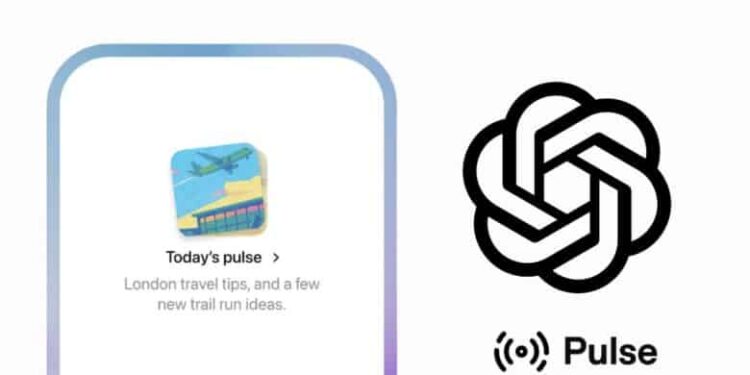OpenAI has lauched a feature that flips how we think about AI helpers. ChatGPT Pulse does overnight research for you and serves up personalized morning briefs with no asking required.
Pulse works behind the scenes, digging through your chat history, connected apps, and preferences to create custom reports while you sleep. When you wake up, 5-10 visual cards wait with exactly what you need to know.
ChatGPT Pulse Turns AI From Reactive to Proactive
Most AI tools wait for you to ask questions. Pulse breaks that pattern completely. It anticipates what you need before you know you need it.
The feature launched recently for ChatGPT Pro subscribers ($200/month) on mobile apps only. OpenAI plans to expand it to Plus users and eventually everyone, but servers need upgrading first.
“We’re building AI that lets us take the level of support that only the wealthiest have been able to afford and make it available to everyone over time,” said Fidji Simo, OpenAI’s CEO of Applications.
Sam Altman called it his favorite new ChatGPT feature this week. The AI boss sees Pulse as the first step toward truly autonomous assistants.
How ChatGPT Pulse Creates Personalized Morning Reports
Each night, Pulse gets to work. It scans your chat memory, feedback patterns, and optional app connections like Gmail and Google Calendar. Then it builds custom briefings based on what matters to you.
OpenAI product lead Adam Fry showed off real examples during a demo: Arsenal soccer updates, Halloween costume ideas for his family, and toddler-friendly travel plans for Sedona. Each brief comes as a visual card with AI-generated images and text.
The system works differently from social media feeds. After showing your daily cards, Pulse says “Great, that’s it for today” and stops. No endless scrolling or engagement tricks.
Smart App Integration Boosts Pulse Performance
Connecting your apps makes Pulse smarter. Link Gmail and it surfaces important overnight emails. Connect Google Calendar and it drafts meeting agendas or reminds you about birthday gifts.
Christina Wadsworth Kaplan, OpenAI’s personalization lead, shared how Pulse automatically picked up her running habit. When she planned a London trip, it suggested running routes without being asked. As a pescatarian, it even finds menu items at restaurants on her calendar that match her diet.
All integrations stay off by default. Users control exactly which apps Pulse can access.
User Curation Shapes Daily Pulse Content
The “curate” function lets you steer what Pulse researches. Ask for Friday event roundups, tennis updates, or specific skill-learning tips. Thumbs up or down feedback teaches the system your preferences over time.
College students in OpenAI’s ChatGPT Lab found Pulse most useful once they started actively guiding it. This feedback showed OpenAI the importance of user control in shaping daily briefs.
Unless you save them as chats, Pulse cards disappear after one day. This keeps the interface clean and focused on current priorities.
Pulse Points to AI’s Autonomous Future
OpenAI envisions systems that research, plan, and act on your behalf without constant prompting.
“Most agents still need to be told what to do. The real breakthrough will come when AI assistants understand your goals and help you reach them without waiting for you to prompt them,” Simo explained.
Future versions might book restaurants or draft emails for approval. But those advanced features need better AI models and user trust first.
The computational cost varies wildly depending on tasks. Simple updates run efficiently, but complex research requiring web searches and document synthesis demands serious processing power.
Privacy Controls Built Into Pulse Design
OpenAI added safety checks to filter harmful content from Pulse briefings. All app connections require explicit user permission and can be turned off anytime.
Users can view and delete their feedback history whenever needed. The system remembers preferences but gives full control over personal data usage.
Current Limitations and Preview Status
Pulse won’t always nail your interests perfectly. It might suggest tips for finished projects or miss the mark on recommendations. OpenAI calls this a preview with room for improvement.
The feature only works on mobile apps for now. Computing limitations explain why it starts with expensive Pro subscribers before expanding to broader audiences.
But early users who actively guide Pulse report finding real value in the personalized morning briefings. As the system learns from feedback, accuracy should improve fast.
















